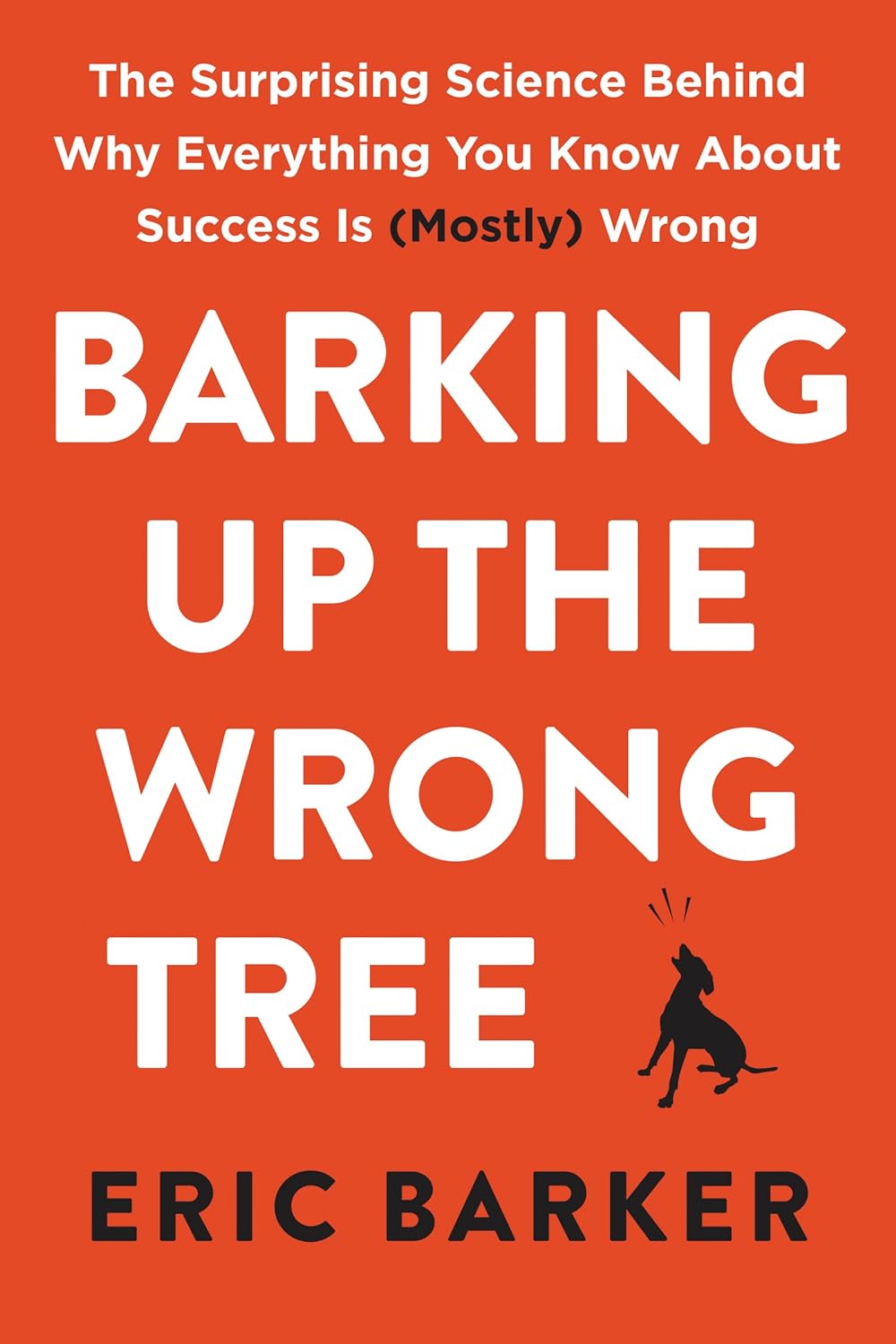The goal of Barking Up the Wrong Tree, Eric Barker gives away the goal of the book. Barker is going to show us why what we know about success is mostly wrong.
There is a lot in this book, so I wont' be able to cover it all. I'll highlight some of the ideas that stood out to me.
What Your Boss Thinks Matters More than Reality
I'm sure it's not going to come as a surprise to learn that what your boss thinks of your work is more important than actually working hard 1. That does mean that good old ass kissing is a good career decision to help ensure that you're employed long term and continue to get raises. The inverse is also true, upsetting your boss is means that good performance won't matter. You'll be out of a job if you don't repair the damage.
This leads us to jerks that can kiss up to the boss. While it's good for their specific careers, it's terrible for overall business productivity2. Keeping one jerk around means that the company is cost between 30-40% productivity3. The people that work with a jerk will fall into everyone for themselves mindsets and never work together for the good of the company. This will be reinforced as they see jerks getting paid more (because they're assertive and demand higher salaries).
I've worked with jerks before, and have always wondered why companies keep them in the face of the obvious detrimental affect they have on productivity in the company?
We Underestimate How Much Others are Willing to Help
Almost directly on the opposite side is the fact that we underestimate by around 50% how much people are willing to help us4. I think about this every time I need some help, by asking myself if I'd be willing to help if the request was in reverse. My answer is always yes, I get joy from helping others.
My not asking for help I'm limiting the times that others can feel this same amount of joy in helping me. I'm limiting the bonding that can happen between each of us as we help each other.
When Work is Always a Choice Everything is a Tradeoff
Finally, work is always an option which means that the rest of our lives is a trade off to climbing the ladder of success5. This fact has been brought on by the technical marvels in our pockets. We work so many hours, and remember in Shorter we learned how much of that time is wasted, because we want to be successful. Most previous generations didn't have to deal with this because there was no way they could take work home.
This means it's up to us to decide when we've done enough work6. We have to decide when we've done "enough" and can call it a day. I use around four hours of focused work, and a single hour of admin work as my enough for the day. That's been enough to get my work done for almost a decade, so why would I live my work life according to someone else's idea that 8 hours is a "proper" work day.
If the number one regret of the dying is that they lived a life according to the rules of others, why do we still let ourselves fall into that trap?
Should You Read Barking up the Wrong Tree by Eric Barker
While I didn't find much in Eric Barker's book revolutionary, that is mostly because I've read so much in the genre already. If you're just starting to look into success, then you'll find Barker's book a decent treatment on the topic that covers a bunch of ground. After Barking Up the Wrong Tree, I'd recommend Atomic Habits, as it will help equip you to make changes to the things you do day to day so that you can step closer to the person you want to be.
Purchase Barking up the Wrong Tree: Independent Bookstore | Amazon

